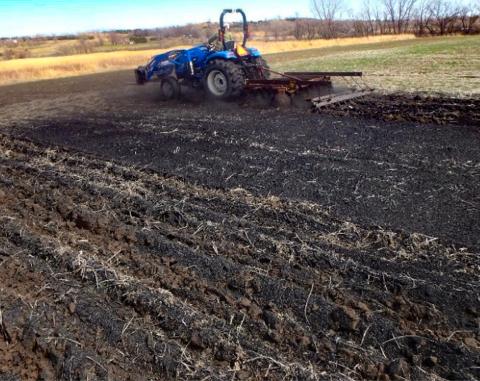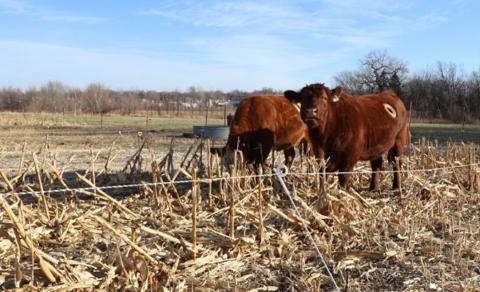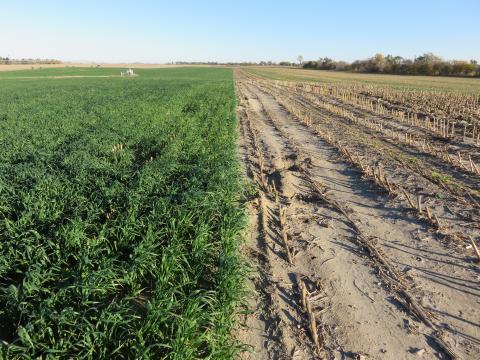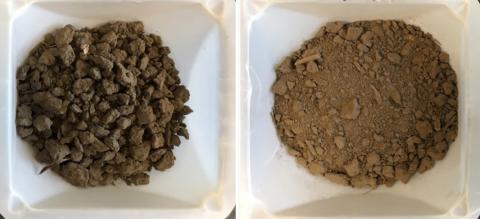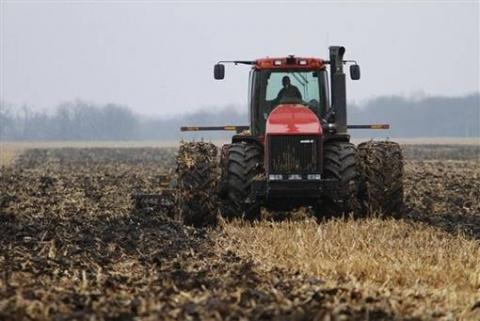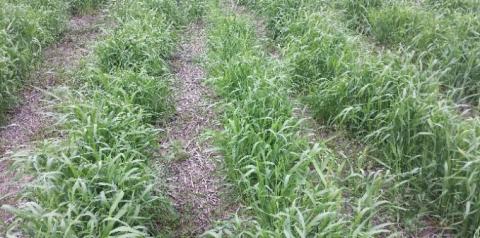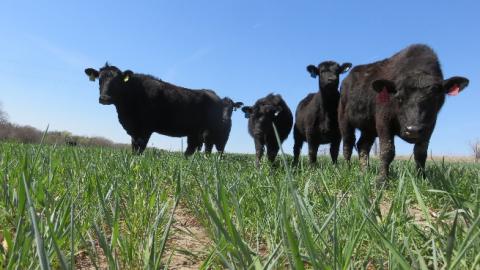Nebraska Field Experiments Investigate Biochar Impact to Soil Health and Crop Yields
September 10, 2024
UNL researchers are utilizing biochar and cover crops in environmentally sensitive Nebraska soils to identify the conditions under which biochar may benefit temperate regions.
Short-term Livestock Grazing Impacts on Crop and Soil Properties from an Eastern Nebraska Experiment
June 8, 2023
Nebraska researchers evaluated two no-till, non-irrigated cropping systems from 2018 to 2020 to compare the effects of livestock grazing in a corn-soybean and corn-soybean-wheat rotation on crop productivity.
Does Grazing Cover Crops Negatively Impact Soil and Crop Yields?
April 29, 2021
Grazing cover crops can be a potential option to re-integrate crops with livestock production and reverse the adverse effects of separating crops and livestock production, despite soil compaction concerns.
Can Cover Crops Offset the Negative Impacts of Corn Silage?
April 28, 2021
UNL researchers discerned varied results from a study on reducing soil compaction and wind/water erosion on fields harvested for corn silage by planting cover crops.
Strategic Tillage for the Improvement of No-Till Cropping Systems
January 21, 2020
The practice of OT once in 5 to 10 years or more is not likely to adversely affect no-till systems. However, to be beneficial, the OT has to be well-planned and implemented to target a well-characterized problem such as a weed control or compaction problem.
How Does Cover Crop Planting Date Affect Soil’s Susceptibility to Water Erosion?
March 11, 2019
This Nebraska student study of how cover crops planted pre- and post-harvest affected soil erodibility found that the amount of water-stable aggregates and biomass production increased with pre-harvest planting.
Cover Crops and Carbon Sequestration: Benefits to the Producer and the Planet
March 11, 2019
This student study of a four-year research project found cover crops may significantly improve soil aggregation and particulate organic matter concentration in the short-term, which suggests the potential for cover crops storing soil carbon in the long term.
Cover Crop Grazing: Impacts on Soils and Crop Yields
January 22, 2019
Results from a three-year study in rainfed and irrigated no-till cropping systems in Nebraska suggest that moderate cattle grazing of cover crops may not negatively impact soil properties and crop production.


